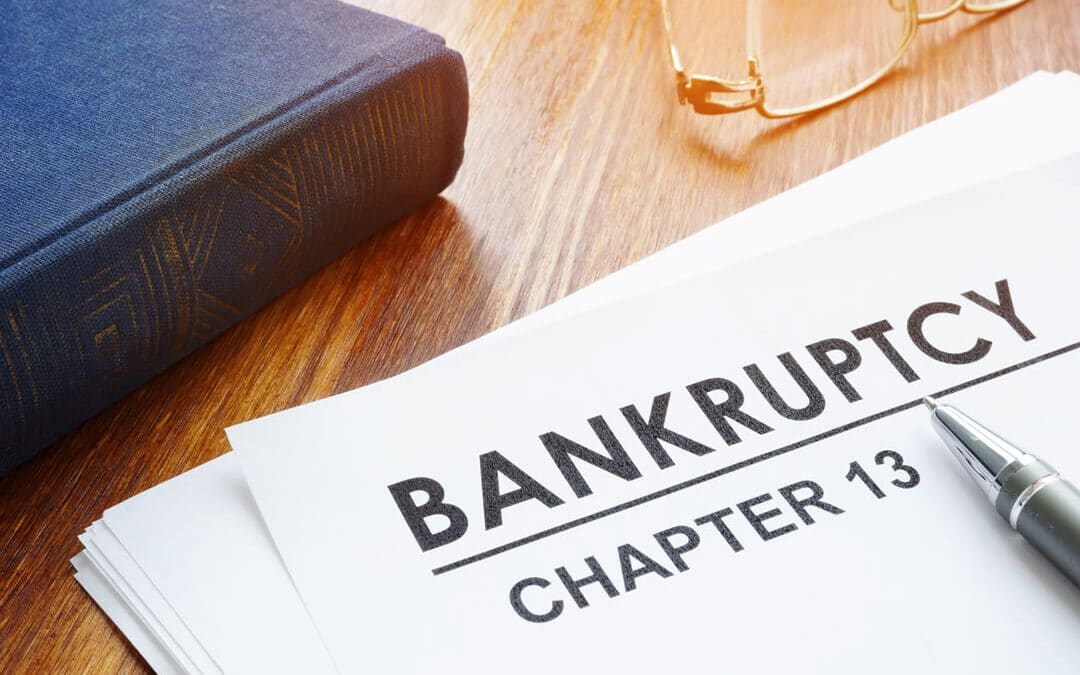Are you struggling financially? Are you in jeopardy of losing your home or your car?
Chapter 13 bankruptcy could offer you help to get out from under your burden of debt. Here are 3 reasons you may want to consider filing Chapter 13 bankruptcy.
Chapter 13 Bankruptcy Could Help with Your Home Mortgage
If you have fallen behind on your mortgage payments, Chapter 13 bankruptcy could help you avoid foreclosure. Under Chapter 13 bankruptcy, you can stop foreclosure proceedings and pay your past-due mortgage payments over time through a court-approved repayment plan.
Chapter 13 repayment plans last 3 to 5 years and require you to make monthly payments to a bankruptcy trustee. The trustee will distribute the funds to the creditors from your bankruptcy case. The amount of the monthly payment would depend on your financial situation and Chapter 13 bankruptcy rules.
While you will pay the mortgage arrearages through the bankruptcy plan, you must still make all regular mortgage payments to your lender on time during your chapter 13 bankruptcy.
Another way Chapter 13 bankruptcy could help you with your mortgage is through lien stripping. If you owe more on your first mortgage than your home is worth and have secondary mortgages, the bankruptcy court could consider them as “unsecured”. This means you could pay them through your Chapter 13 bankruptcy plan at a significantly reduced rate like any of your other unsecured debt.
Chapter 13 Bankruptcy Could Help with Your Car Loan
Chapter 13 bankruptcy could also help you if you are behind on your car payments. You could save your car from repossession even if it has been repossessed but not yet sold at auction. Much like with a defaulted mortgage, you would pay the past-due payments through your Chapter 13 bankruptcy repayment plan while continuing to make regular payments to your lender.
Also, if you purchased your car, at least 910 days before you filed bankruptcy and owe more on it than its fair market value, you could “cramdown” the payment. For example, if you owe $12,000 on your car but it has a fair market value of $7,000, the bankruptcy court could decree that you pay just the fair market value to your lender. The bankruptcy court may also require your lender to reduce the interest rate they have been charging you.
The additional balance of your loan gets deemed as an unsecured debt. You can then pay it through your Chapter 13 bankruptcy plan like your other unsecured debts. Typically only a small portion of unsecured debts get paid before the end of the bankruptcy plan and the unpaid portions are completely wiped out.
Chapter 13 Bankruptcy Could Help with Your Tax Debt
If you have back taxes to the IRS, you could discharge them through Chapter 13 bankruptcy. Your tax debts must meet the following criteria:
- the tax return for which you owe was due at least three years before you file bankruptcy
- you filed the tax return at least two years before filing bankruptcy
- the IRS assessed your liability at least 240 days before you file bankruptcy
- you are not guilty providing fraudulent information on the tax return
- you did not willfully invade filing the tax return
If your tax debt meets these criteria, the bankruptcy court could consider them as unsecured debts. You would then pay them at a significantly reduced rate through your Chapter 13 bankruptcy plan.
You must pay the tax debt that does not meet these criteria in full. But, your payments could be stretched out over the 3 to 5 years of your Chapter 13 payment plan and without interest or penalties charged.
Getting Help Filing Your Chapter 13 Bankruptcy
As you can see, Chapter 13 bankruptcy has many ways to help debtors with their financial struggles. Yet, not all bankruptcy laws apply to every financial situation. Knowing exactly what aspects of Chapter 13 bankruptcy could most benefit you might get complicated. An experienced bankruptcy attorney can assess your financial circumstances and determine if Chapter 13 bankruptcy is right for you.
Brock & Stout’s bankruptcy attorneys have helped clients get out from under the burden of debt for over 20 years. Contact us for a free evaluation of your financial situation to see if we can help you.

